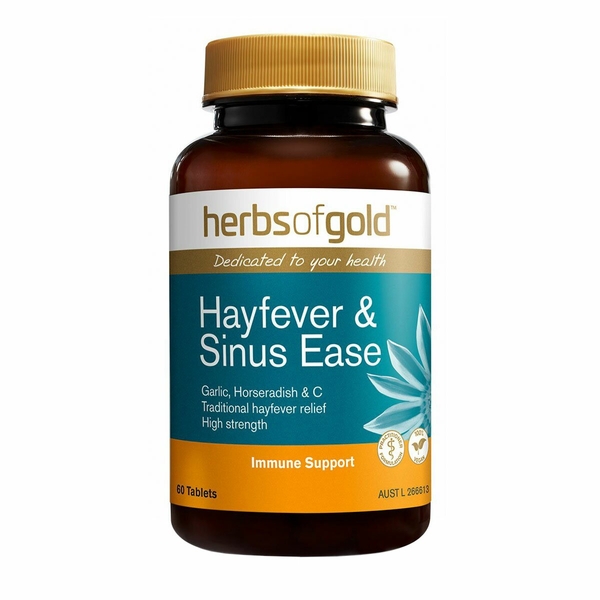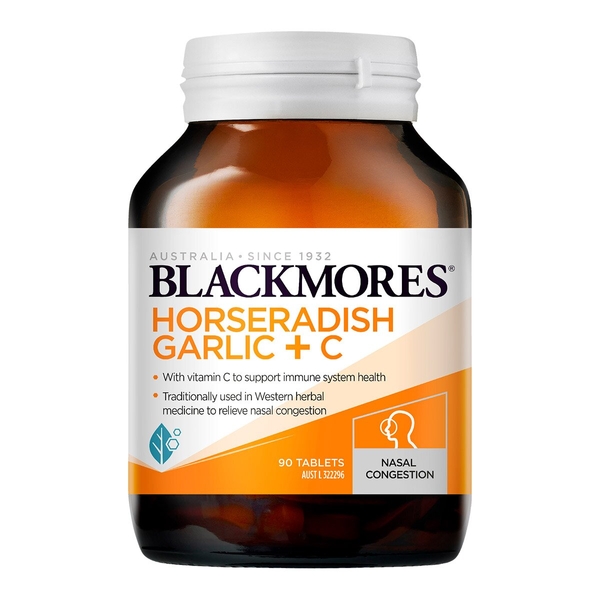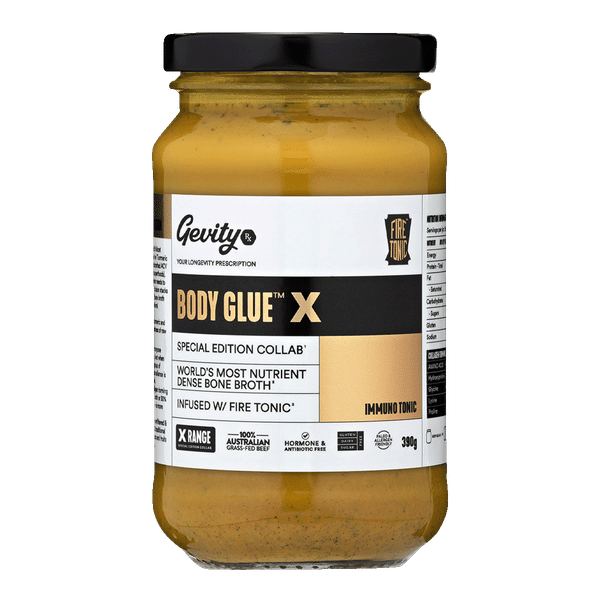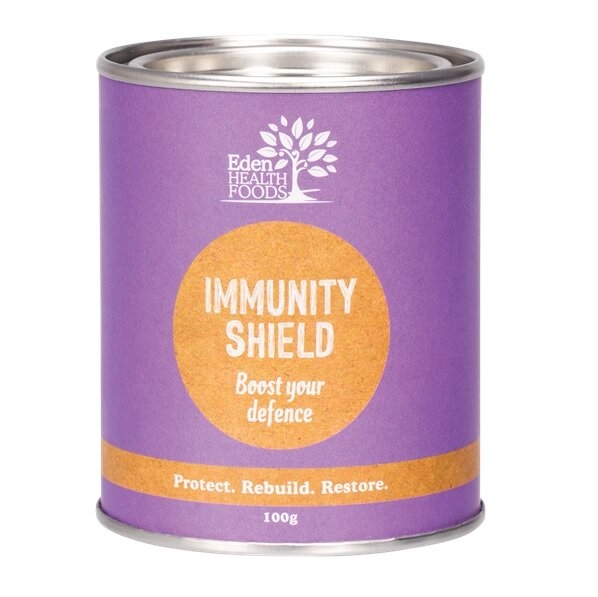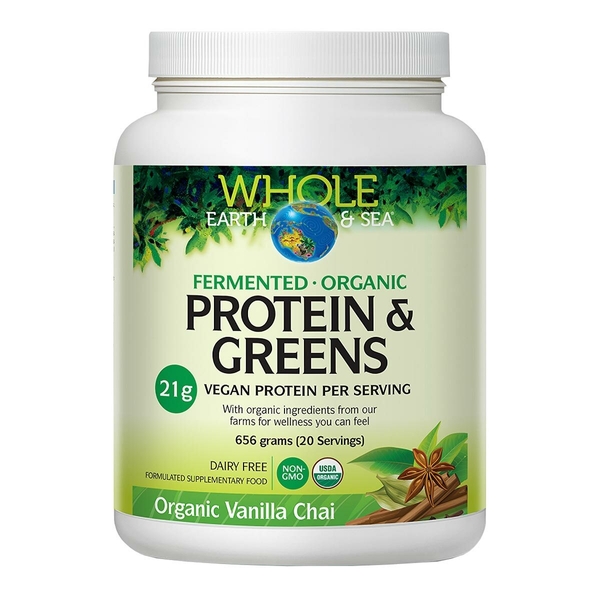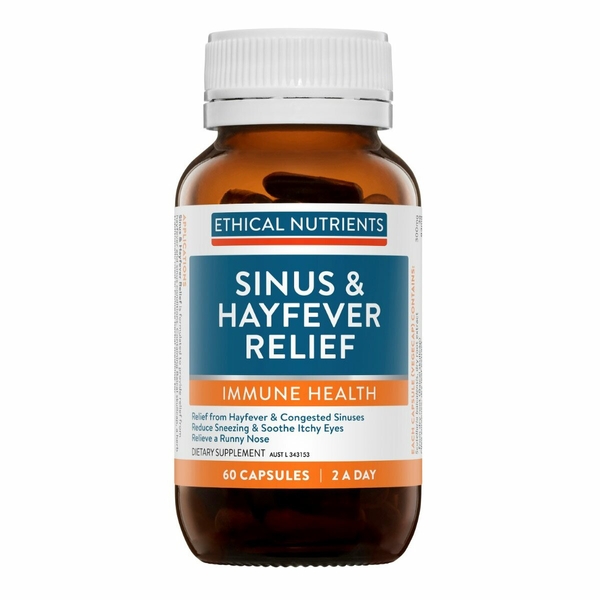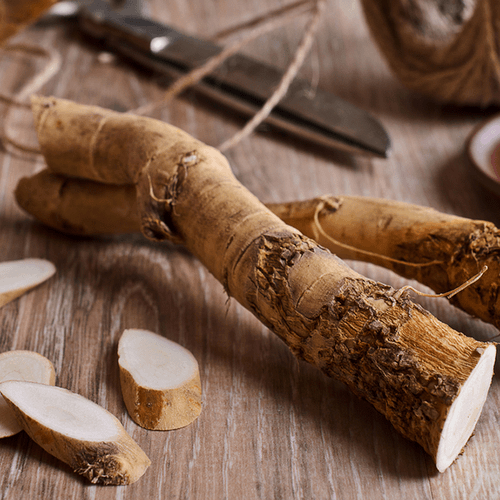
Horseradish
Scientific names: Armoracia rusticana, Armoracia lopathifolia, Cochlearia armoracia, Nasturtium armoracia, Rorippa armoracia
Family: Brassicaceae/Cruciferae
Alternate names: Amoraciae Rusticanae Radix, Cran de Bretagne, Cranson, Grand Raifort, Great Raifort, Meerrettich, Mountain Radish, Moutarde des Allemands, Moutarde des Capucins, Moutardelle, Pepperrot, Rábano Picante, Rábano Rústico, Radis de Cheval, Raifort, Raifort Sauvage, Red Cole
Actions: Antibacterial, activity, Anticancer activity, Anticoagulant/antiplatelet activity, Antihypertensive activity, Anti-inflammatory activity, Antimutagenic activity, Antithyroid activity, Insecticidal activity, Oxidizing activity
Background
Horseradish (Armoracia rusticana) is a plant. The roots are often used as a condiment and eaten with beef and fish. They are also sometimes used as medicine.
Horseradish might help fight bacteria and stop spasms.
People use horseradish for urinary tract infections (UTIs), colic, gout, and many other conditions, but there is no good scientific evidence to support these uses.
Don't confuse horseradish with moringa or wasabi. These are not the same.
Horseradish might help fight bacteria and stop spasms.
People use horseradish for urinary tract infections (UTIs), colic, gout, and many other conditions, but there is no good scientific evidence to support these uses.
Don't confuse horseradish with moringa or wasabi. These are not the same.
Safety Safety definitions
When taken by mouth: Horseradish root is commonly consumed with foods. It is possibly safe when used as medicine for up to 12 weeks. But it contains mustard oil, which can irritate the lining of the mouth and stomach. When consumed in large amounts, side effects might include stomach upset, bloody vomiting, diarrhea, and fainting.
When applied to the skin: Horseradish is possibly safe when preparations containing 2% mustard oil or less are used. It can cause skin irritation and allergic reactions.
Breast-feeding: Horseradish is commonly consumed with foods. But it's likely unsafe to take horseradish by mouth in large amounts when breast-feeding. Horseradish contains mustard oil, which can pass into breast milk and cause serious adverse effects.
Children: Horseradish is likely unsafe when taken by mouth in children under 4 years of age. It can cause stomach problems in young children.
Stomach or intestinal ulcers, inflammatory bowel disease, infections or other digestive tract conditions: Horseradish can irritate the digestive tract. Don't use horseradish if you have any of these conditions.
Thyroid disorders: Horseradish might make this condition worse. If you have a thyroid disorder, speak with your healthcare provider before taking horseradish.
When applied to the skin: Horseradish is possibly safe when preparations containing 2% mustard oil or less are used. It can cause skin irritation and allergic reactions.
Special Precautions & Warnings:
Pregnancy: Horseradish is commonly consumed with foods. But it's likely unsafe to use horseradish tincture by mouth regularly or in large amounts when pregnant. This might lead to miscarriage.Breast-feeding: Horseradish is commonly consumed with foods. But it's likely unsafe to take horseradish by mouth in large amounts when breast-feeding. Horseradish contains mustard oil, which can pass into breast milk and cause serious adverse effects.
Children: Horseradish is likely unsafe when taken by mouth in children under 4 years of age. It can cause stomach problems in young children.
Stomach or intestinal ulcers, inflammatory bowel disease, infections or other digestive tract conditions: Horseradish can irritate the digestive tract. Don't use horseradish if you have any of these conditions.
Thyroid disorders: Horseradish might make this condition worse. If you have a thyroid disorder, speak with your healthcare provider before taking horseradish.
Effectiveness
Effective Effectiveness definitions
There is interest in using horseradish for a number of purposes, but there isn't enough reliable information to say whether it might be helpful.
Dosing & administration
Horseradish root is commonly consumed with foods as a condiment.
As medicine, there isn't enough reliable information to know what an appropriate dose of horseradish might be. Keep in mind that natural products are not always necessarily safe and dosages can be important. Be sure to follow relevant directions on product labels and consult a healthcare professional before using.
As medicine, there isn't enough reliable information to know what an appropriate dose of horseradish might be. Keep in mind that natural products are not always necessarily safe and dosages can be important. Be sure to follow relevant directions on product labels and consult a healthcare professional before using.
Interactions with pharmaceuticals
Thyroid hormone
Interaction Rating=Moderate Be cautious with this combination.
Horseradish might decrease thyroid activity. Taking horseradish along with thyroid hormone might decrease the effects of thyroid hormone.
Interactions with herbs & supplements
Herbs with thyroid activity: Horseradish might affect the body's production of thyroid hormone. Taking it with other supplements with similar effects might alter thyroid function too much and cause side effects. Examples of supplements with this effect include bugleweed, lemon balm, and tiratricol.
Interactions with foods
There are no known interactions with foods.
Products
View all productsRRP: $42.96$30.06Save: 30%
Create account
RRP: $36.99$27.74Save: 25%
Create account
Per 10 g (X Immuno Tonic):
- Armoracia rusticana (Horseradish)
- Beef bones
- Sea salt
- Curcuma longa
- Piper nigrum
- Chilli powder
- Honey
- Apple cider vinegar
- Allium sativum
- Zingiber officinale
- Daucus carota powder (Carrot)
- Apium graveolens
- Allium cepa
- Malus (Apple)
- Orange
- Citrus limon (Lemon)
- Brassica juncea
- Petroselinum crispum
- Rosmarinus officinalis
- Thymus vulgaris
- Juniperus communis (berry)
- Bay leaf
- Szechuan pepper
- Backhousia citriodora
- Pink Himalayan crystal salt
- Origanum vulgare (Oregano)
390 g X Immuno Tonic
RRP: $39.00$33.15Save: 15%
Create account
Per 3 g:
- Armoracia rusticana (Horseradish)
- Echinacea angustifolia
- Astragalus membranaceus
- Sambucus nigra (fruit)
- Lycium barbarum
- Rosa canina
- Luo Han Guo (fruit) ext. (Monk fruit)
- Echinacea purpurea
- Sambucus nigra
- Glycyrrhiza glabra (root)
- Olea europaea (leaf)
- Calendula officinalis
- Origanum vulgare
- Uncaria tomentosa
- Mentha x piperita
- Thymus vulgaris
- Cola acuminata
- Foeniculum vulgare
- Inula helenium
- Asclepias tuberosa
- Achillea millefolium
- Capsicum spp.
- Allium sativum
- Allium cepa
- Zingiber officinale
- Cordyceps sinensis (mushroom)
- Ganoderma lucidum (mushroom)
- Lentinula edodes (mushroom)
- Tremella fuciformis (mushroom)
- Trametes versicolor (mushroom)
- Salvia eremostachya
- Hericium erinaceus (mushroom)
- Inonotus obliquus (mushroom)
- Ilex paraguariensis
RRP: $49.95$42.46Save: 15%
Create account
Per 35.5 g (Vanilla Chai):
- Armoracia rusticana (Horseradish)
- Pea protein concentrate
- Oryza sativa (Rice protein)
- Hordeum vulgare
- Wheatgrass powder
- Amaranth powder
- Quinoa powder
- Medicago sativa
- Malus (Apple)
- Vaccinium corymbosum
- Vaccinium macrocarpon
- Daucus carota powder (Carrot)
- Coriandrum sativum
- Petroselinum crispum
- Cynara scolymus
- Raphanus raphanistrum (Wild radish)
- Taraxacum officinale
- Brassica oleracea var. acephala (leaf) powder (Kale)
- Apium graveolens
- Beta vulgaris
- Spinacia oleracea (Spinach)
- Lycopersicon esculentum (Tomato)
- Brassica oleracea var. italica
- Brassica oleracea var. viridis
- Nasturtium officinale
- Ocimum basilicum
- Piper nigrum
- Mentha spicata
- Natural flavours
- Malpighia glabra ext. dry
- Cordyceps sinensis
- Ganoderma lucidum
- Lentinula edodes
- Grifola frondosa
- Trametes versicolor
- Elettaria cardamomum
- Cinnamomum spp.
- Cannabis sativa (seed) powder
- Agaricus subrufescens
- Stevia rebaubiana
RRP: $64.96$58.47Save: 10%
Create account
RRP: $41.95$28.53Save: 32%
No longer stocked by vital.ly
Create account
vital.ly has licensed monographs from TRC Healthcare.
This monograph was last reviewed on 31/05/2023 10:00:00 and last updated on 03/12/2014 19:20:55. Monographs are reviewed and/or updated multiple times per month and at least once per year.
Natural Medicines disclaims any responsibility related to medical consequences of using any medical product. Effort is made to ensure that the information contained in this monograph is accurate at the time it was published. Consumers and medical professionals who consult this monograph are cautioned that any medical or product related decision is the sole responsibility of the consumer and/or the health care professional. A legal License Agreement sets limitations on downloading, storing, or printing content from this Database. No reproduction of this monograph or any content from this Database is permitted without written permission from the publisher. It is unlawful to download, store, or distribute content from this site.

